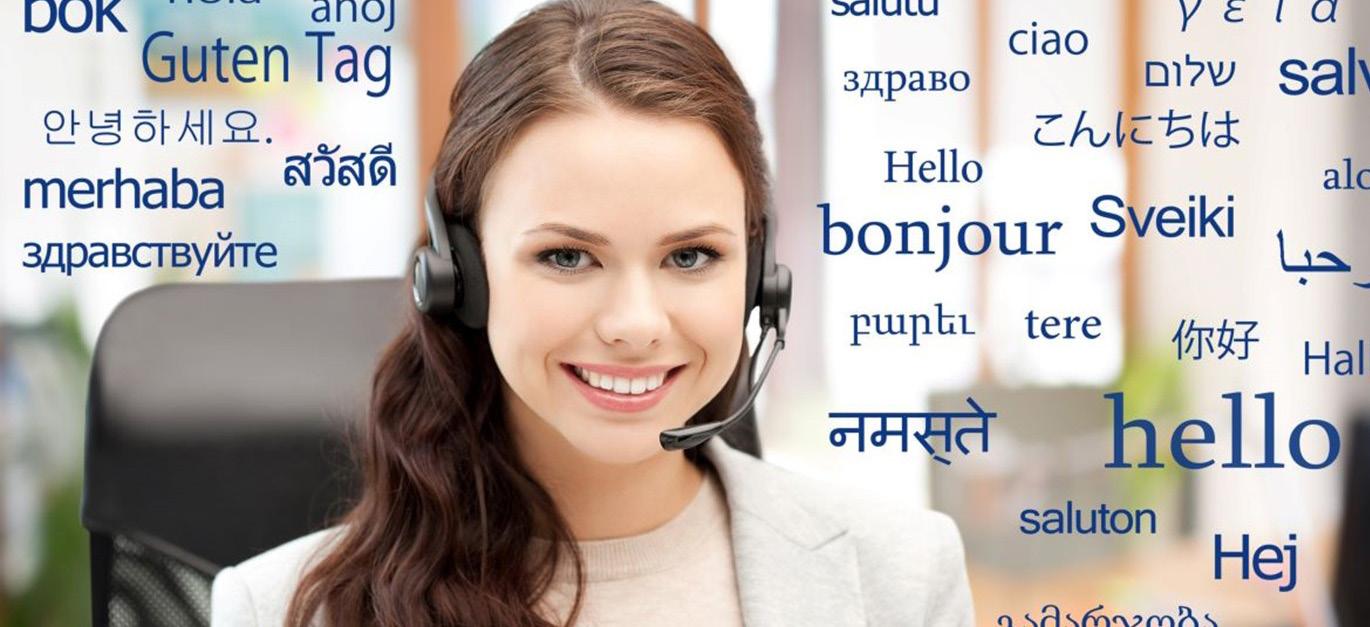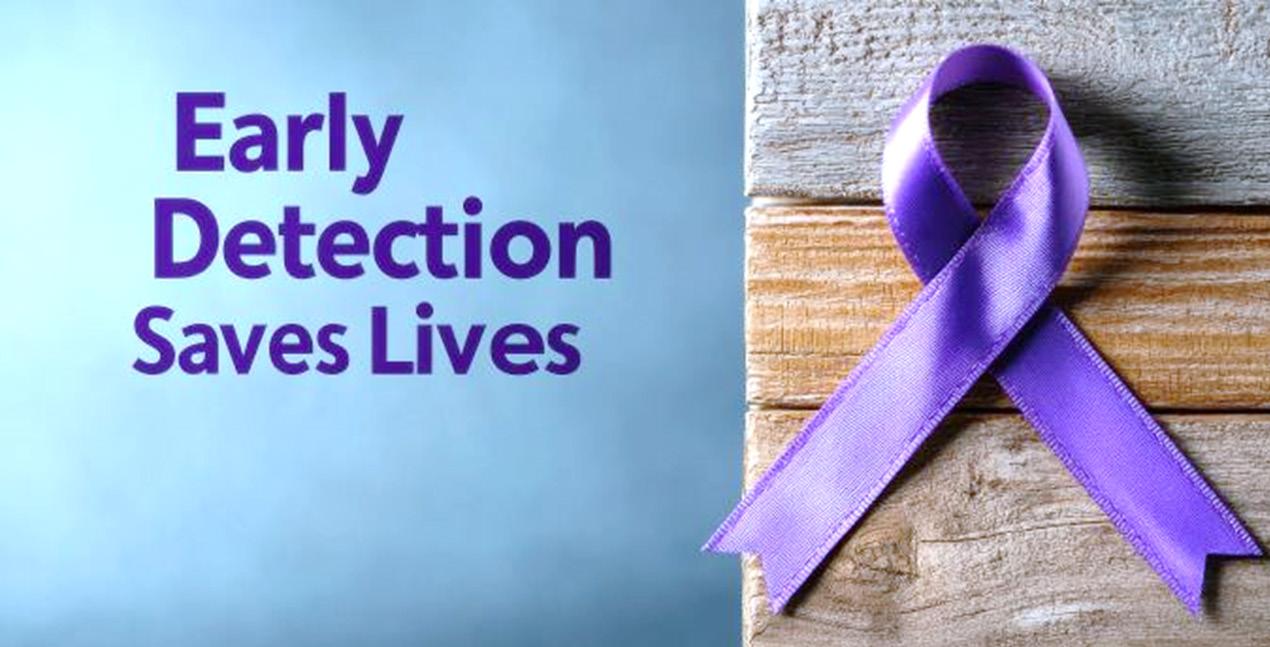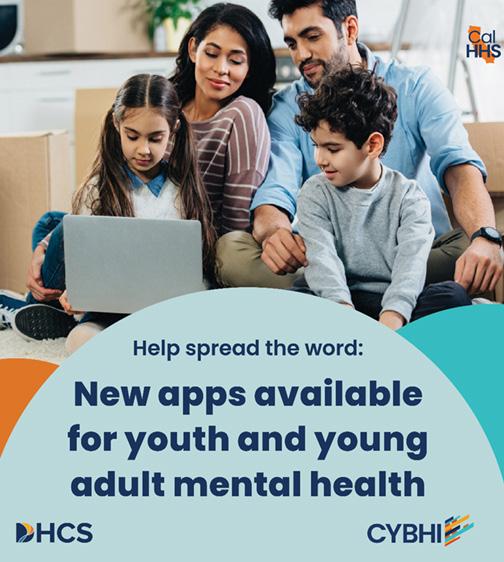




We are pleased to announce that Valley Health Plan (VHP) has received National Committee for Quality Assurance (NCQA) Health Plan Accreditation, a mark of excellence recognizing our commitment to high-quality care and improved health outcomes for your VHP patients.
The NCQA accreditation highlights our achievements in:
● Clinical Quality: Ensuring evidence-based care and continuous improvement
● Member Services: Fostering a positive, accessible experience for your VHP patients
● Health Plan Administration: Demonstrating strong leadership and operational effectiveness
As Laura Rosas, CEO of VHP, notes, “VHP’s successful survey for NCQA Health Plan Accreditation represents a great achievement for the entire VHP team. We have now received NCQA Accreditation for Health Equity and full Health Plan for our commercial lines of business. This effort has been transformational for the health plan.”
As part of the VHP provider network, you have played a key role in achieving this accreditation. NCQA’s rigorous standards emphasize collaboration between health plans and providers to improve care, enhance patient safety, and ensure efficiency. This accreditation helps build trust and satisfaction, benefiting both patient outcomes and our partnership.
“This successful NCQA Accreditation effort was the culmination of three years of effort to align our operational policies and practices with the extensive and rigorous requirements of NCQA. We are very proud of the VHP team!” said Victoria Phan, COO of VHP. This accreditation is a significant milestone in VHP’s ongoing commitment to delivering quality care to your VHP patients. We look forward to continuing our work with you to further enhance the services we offer.
Thank you for your partnership and dedication to improving the health of our communities.

Your office may have received calls and faxes requesting medical records for Valley Health Plan’s HEDIS® (Healthcare Effectiveness Data and Information Set) medical record data retrieval and abstraction process.
Timeline: The process began on Feb. 1, 2025, and the deadline for completion is May 2, 2025.
Vendor Partners: VHP has partnered with Optum and Datavant to perform the HEDIS® medical record retrieval and abstraction on our behalf. HIPAA (Health Insurance Portability and Accountability Act) allows for using and disclosing protected health information for health plan quality performance measurement activities, such as HEDIS, among covered entities without the individual member’s written authorization (section §164.506). Optum and DATAVANT will comply with all applicable federal and state privacy and confidentiality requirements.
Process and Next Steps: A representative from Datavant or Optum will contact your
office via fax or phone to arrange medical records retrieval with you.
You can submit medical records using one of the following options:
1. DATAVANT Link Provider Portal (Recommended method): Upload up to 200 medical records to DATAVANT’s secure provider portal at https:// datavant.com/provider/upload. Username and Password credentials are located on your Pull List that contains patient/measure information.
2. EMR (Electronic Medical Record) remote retrieval: Call 1-877-445-9293 to set up a secure remote connection directly from a provider site’s EMR to DATAVANT for timely off-site remote retrieval of records with trained associates.
3. Onsite retrieval: Call 1-877-4459293 to schedule onsite retrieval with a complimentary DATAVANT Retrieval Specialist or to review any aspects of the onsite retrieval services.
4. Fax: Send secure faxes to DATAVANT at 1-972-729-6180.
5. Mail: Mark “Confidential” on the envelope, and mail the medical records to:
DATAVANT
2222 W. Dunlap Ave. Phoenix, AZ 85021
Thank you in advance for your participation. We appreciate your partnership in this effort to improve the health of your VHP patients.
If you have any questions regarding the retrieval of medical records or the HEDIS® data collection process please contact Monica Baldzikowski, Quality Improvement Manager at Valley Health Plan at monica. baldzikowski@vhp.sccgov.org.
VHP’s commitment includes offering cultural and language resources for our contracted providers. We want to support your efforts in delivering the best services possible to your VHP patients by:
● Sharing the language needs of your VHP patients on a population level annually
● Sharing the language needs of VHP patients assigned to provider panels and provider groups annually
● Presenting a language assistance resource to all providers
● Ensuring all providers have in-person, video, or telephone interpretation services available
● Offering providers training on the facilitation of VHP’s language services
VHP serves Santa Clara County, and the following data indicates the languages spoken by residents as of January 2025.
VHP shares a language assistance resource called “I Speak” cards with all providers annually. These customized cards include VHP Language Assistance Program information. Providers may request printed copies or may download the resource.

● “I Speak” cards are available on the “Provider Forms and Resources” section of the VHP website: Interpreter Services and I Speak Cards.
● If you would like to request a set of printed “I Speak” Cards, please reach out to your Provider Relations Specialist or contact the Provider Relations team at providerrelations@ vhp.sccgov.org.
● The VHP “I Speak” printable resource was developed to help providers determine the language spoken by patients who need an interpreter.
● We encourage providers to print the “I Speak” cards and have them available at all points of contact with patients in your office. If your staff cannot easily determine the language spoken by the patient to obtain interpretation services, the “I Speak” Cards can be given to reading-proficient VHP patients so they can identify their spoken language.
VHP provides the following interpretation resources to contracted providers to assist their VHP patients.
● Contact VHP Language Services at 1-844-670-6820 to gain access to interpretation resources.
● For TTY (Teletypewriter) services for hearing or speech impairments, call California Relay at 711 and provide the phone number: 1-800-735-2929.
● Upon reaching Language Services, a caller should be prepared to identify themselves as a VHP provider, inform the operator that they are calling on behalf of a VHP patient, and identify the language requiring interpretation.
For an in-person interpretation, a request should be submitted to Language Services at least 72 hours before the in-person interpretation is needed. To schedule an inperson interpretation, call 1-844-670-6820.
The requestor must provide Language Services with the provider’s name and address, the VHP member’s name and VHP ID number, the language needed, and the appointment date, time, and location.
As a contracted VHP provider, you can access our language services to translate vital documents. You may request the translation of vital documents by sending an email (along with the document to be translated) to the VHP Member Services Department at: memberservices@vhp.sccgov.org.
For more information and assistance, or if you would like to schedule a Language Resource Training, please reach out to VHP’s Provider Relations team at providerrelations@vhp.sccgov.org.

Providers play an essential role in assessing and managing their patients’ immediate health needs, chronic conditions, and preventive care. On Jan. 1, 2023, the Initial Health Assessment (IHA) was replaced with the Initial Health Appointment (IHA) by the Department of Health Care Services (DHCS) in All Plan Letter APL 22-030.
The Initial Health Appointment happens when a Medi-Cal patient visits their primary care provider (PCP). The provider assesses and manages the patient’s immediate health needs, chronic conditions, and preventive care. In line with the Population Health Management Guide and the Medi-Cal Managed Care Health Plan contract, the IHA policy is designed to enhance patient care and outcomes.
All Medi-Cal members must complete an IHA within 120 days of enrollment and periodically re-do the assessment according to the requirements.
● Must be performed by a primary care provider
● It is not needed if the member’s medical records were fully updated within the previous 12 months
● Must be provided in a way that is culturally and linguistically appropriate for the member
● Must be documented in the member’s medical record
● Taking a history of the member’s physical and mental health
● Identifying health risks
● Assessing the need for preventive screenings or services
● Providing health education
● Diagnosing and planning for treatment of any diseases
DHCS requires PCPs to complete an IHA for all new plan members within 120 calendar days of enrolling in a Medi-Cal managed care health plan. IHAs are not diagnostic tools or full health histories. Their purpose is to engage patients in their health and promote better long-term choices and behaviors.
● Increase patient connection by using data for discussion
● Help identify and prioritize patient health issues and goals
● Help patients understand their current health status
● Remind patients about habits that affect their health
● Identify issues requiring patient referral to additional resources
For more information about the IHA, refer to the IHA Provider Training.
Links
● All Plan Letter APL 22-030 Initial Health Appointment
● Population Health Management Guide
● Managed Care Health Plan contract
The following are highlights from the December 2024 Pharmacy and Therapeutic Committee (P&TC meeting):
Physician Administered Drug (PAD) Step Therapy List
VHP P&TC adopted the PAD Step Therapy List. This list will be applicable to your VHP patients who are covered by our Employer, Covered California, and Individual and Family insurance. Step therapy is used to promote cost effective pharmaceutical management when there are multiple clinically effective drugs to treat a condition.
We will launch a pilot program in April 2025 to give our providers and our staff an opportunity to adjust to this new program. During this period, for your VHP patients who will be starting on any non-preferred drug listed on the VHP PAD Step Therapy List, our VHP staff will reach out to you to inform you of our preferred drug and ask you switch them to this alternative. If your patient cannot go through step therapy, we will
ask you to submit clinical documentation for a step therapy exception. We will review all documentation and make an exception when the criteria are met. Our goal is to decrease outreach over time. Once VHP determines that the pilot program goals have been met, we will inform you of the effective date. Over time, VHP P&TC will continue to add more PADs to the Step Therapy List.
VHP P&TC approved our customized guideline for Spravato. For details, visit: Spravato Guideline.
For more information regarding authorization and referrals, visit: Authorizations and Referrals.
For additional updates from VHP’s December P&TC, please visit our website: https:// www.valleyhealthplan.org/providers/ pharmacy > Drug Formulary > Summary of formulary updates.
The VHP Physician Administered Drug Step Therapy list applies only to the following plans: Employer, Covered California, and Individual & Family plans. The following drugs require prior authorization under the medical benefit. The listed preferred drugs must be used first.
J9035
Q5107
Q5126
J9355
Q5112
Q5113
J1745
Q5103
J9312
Q5115
Avastin (bevacizumab)
Mvasi (Bevacizumab-awwb)
Alymsys (bevacizumab-maly)
Herceptin (trastuzumab)
Ontruzant (trastuzumab-dttb)
Herzuma (trastuzumab-pkrb)
Remicade (infliximab)
Inflectra (Infliximab-dyyb)
Rituxan (rituximab)
Truxima (rituximab-abbs)
J2506 Neulasta / Neulasta OnPro (pegfilgrastim)
Q5118 Zirabev (bevacizumab-bvzr)
Q5129 Vegzelma (bevacizumab-adcd)
Q5116 Trazimera (trastuzumab-qyyp)
Q5114 Ogivri (trastuzumab-dkst)
Q5121 Avsola (infliximab-axxq)
Q5104 Renflexis (Infliximab-abda)
Q5123 Riabni (rituximab-arrx)
Q5119 Ruxience (rituximab-pvvr)
Q5108
Q5130
Q5122
Q5120
Fulphila (pegfilgrastim-jmdb)
Fylnetra (pegfilgrastim-pbbk)
Nyvepria (pegfilgrastim—apgf)
Ziextenzo (pegfilgrastim-bmez)

Over the past year, VHP has launched its new value-based payment program to improve health outcomes by closing gaps in care. Below are some of our value-based payment program measures for improving colorectal, breast, and cervical cancer screening.
According to the World Health Organization (WHO), cancer is a leading cause of morbidity and mortality worldwide. Early detection and treatment are key to improving patient outcomes. Colorectal, breast, and cervical cancers are among the most common types of cancer, and regular screening is important for early detection and treatment.
Early detection reduces morbidity and mortality rates, allows for a greater range of treatment options, and lowers healthcare costs. By following the U.S. Preventive Services Task Force (USPSTF) guidelines and tracking performance using Healthcare Effectiveness Data and Information Set (HEDIS) measures, medical professionals can help improve the early detection and treatment of cancer, leading to better health outcomes for their patients. It is important for medical professionals to be aware of these recommendations and measures as they can help identify patients who are due for cancer screening and ensure that they receive the appropriate tests.
According to the American Cancer Society (ACS), colorectal cancer is the third most common cancer in both men and women in the United States. Early-stage colorectal cancer treatment results in a 90 percent survival rate, making early detection crucial. The ACS recommends regular screening for adults at average risk starting at age 45. Screening for colorectal cancer in asymptomatic adults helps detect polyps before they become cancerous and identifies cancer in its early stages, when treatment is most effective.
USPSTF Recommendations:
● Ages 45–75: Colonoscopy, sigmoidoscopy, or high-sensitivity fecal occult blood test
● Ages 76–85: Screening should be offered selectively based on overall health, prior screenings, and patient preferences, as the overall benefit in this age group is small.
According to the Centers for Disease Control and Prevention, breast cancer is the most common type of cancer among women in the United States, regardless of race or ethnicity. Mammograms are important for early detection, and the USPSTF recommends screenings for women with an average risk between the ages of 40 and 74. Women with a family history of breast cancer may benefit from earlier screenings.

USPSTF Recommendations:
● Ages 40–74: Mammogram every other year
● Below Age 40 (higher risk women with a family history): May benefit from earlier screenings before age 40
Cervical cancer, the fourth most common cancer in women worldwide according to the WHO, was once a leading cause of cancer death in American women. Thanks to effective screening and early detection, death rates from cervical cancer have significantly decreased. The USPSTF recommends screening for cervical cancer in women ages 21 to 65.
USPSTF Recommendations:
● Ages 21–29: Pap test every 3 years
● Ages 30–65: Pap test every 3 years, or high-risk HPV (hrHPV) test every 5 years, or a combination of hrHPV test and Pap test every 5 years
VHP will continue to collaborate with our providers by:
● supporting our providers by incenting and sharing gaps in care data.
● reaching out to members to deliver education and screening reminders.
● tracking and trending areas needed for quality improvement.
References
1. Cancer Screening Rates Missing Targets. (2015, May 26). National Cancer Institute. https://www.cancer.gov/news-events/ cancer-currents-blog/2015/screeningtargets
2. HEDIS Measures and Technical Resources. (2022a, December 15). NCQA. https:// www.ncqa.org/hedis/measures/
3. U.S. Preventive Services Task
Force. (n.d.) https://www. uspreventiveservicestaskforce.org/ uspstf/recommendation/breastcancer-screening.
4. U. S. Preventive Services Task Force. (n.d.-b). https://www. uspreventiveservicestaskforce.org/ uspstf/recommendation/breastcancer-screening
5. Colorectal Cancer: Screening. (2021, May 18). https://www. uspreventiveservicestaskforce.org/ uspstf/recommendation/colorectalcancer-screening
6. “Cancer.” World Health Organization. (n.d.). https://www.who.int/news-room/ fact-sheets/detail/cancer.
7. American Cancer Society | Information and Resources about for Cancer: Breast, Colon, Lung, Prostate, Skin. (n.d.). American Cancer Society. https://www.cancer. org/cancer/colon-rectal-cancer/ about/key-statistics.html.
8. Breast Cancer Statistics. (2022, November 29). Centers for Disease Control and Prevention. https://www.cdc.gov/ breast-cancer/statistics.

As part of a partnership between Valley Health Plan and the American Cancer Society, we are thrilled to share a variety of valuable resources from the American Cancer Society to support providers and their efforts. These resources include key information about the cancer landscape, early detection and screening of
cancer, and programs and services for your patients who may be going through a cancer journey.
American Cancer Society has many programs and resources to support patients going through a cancer journey, as well as their families and caregivers. This includes access to our 24/7 cancer helpline, free rides to cancer treatment, navigation support, hair loss and recovery care products, and more. Learn about all of our patient programs and services at www.cancer.org.
Cancer Facts & Figures 2025 is an educational companion for Cancer Statistics, a scientific paper published in the American Cancer Society journal: A Cancer Journal for Clinicians. Highlights from the annual report include estimated numbers of new cancer cases and deaths in 2025 by cancer site and U.S. state, as well as survival statistics, information on cancer symptoms, risk factors, early detection, and treatment.
Some key trends include:
● The cancer burden shifts as incidences rise in women and decrease in men. Cancer rates were 82% higher in women than in men under age 50 in 2021.
● Racial differences in cancer mortality persist. Deaths for Native American and black people are at least two times higher than white people for many largely preventable cancers.
Links
● American Cancer Society Patient Programs and Services
● Cancer Facts & Figures 2025
● Cancer Statistics, 2025

VHP needs your support in our ongoing efforts to ensure equity through an annual provider survey. Please take a few minutes to complete this brief survey to better understand our provider network demographics, language capacity, and cultural competency. The data will allow us to capture the work you are already doing in a quantifiable way and to better understand the support you may need to continue delivering culturally responsive health care services.
The survey will be open until June 30,2025.
Please take the survey by clicking on the link below or scanning the QR code: https://www.surveymonkey.com/r/ VHPProviderSurvey24.


Valley Health Plan is pleased to offer an exciting new benefit to your VHP patients with type 2 diabetes or prediabetes through our partnership with Virta Health. This program provides comprehensive weight loss and diabetes care at no additional cost.
Virta offers a clinically backed nutrition program designed to help patients lose weight, lower blood sugar levels, safely reduce medications, and potentially reverse type 2 diabetes.
Eligibility
Available to VHP members and eligible dependents (ages 18+) with type 2 diabetes or prediabetes. Medi-Cal members are excluded. Certain medical conditions may also exclude some patients.
● A clinically backed nutrition program focused on weight loss and diabetes reversal
● On-demand support from health coaches and personalized care from a dedicated medical team
● Tools such as a digital weight scale and meter, along with exclusive nutrition resources
● Assistance in safely reducing medications with a dedicated practitioner
● Notifications: If you are a primary care provider and any of your VHP patients are approved for Virta Health, you will be notified by the Virta provider.
● Patient Inquiries: Some patients may approach you about the program. Those who are interested and complete an online application will be guided through necessary lab work at no cost through Virta’s partner labs.
● Your VHP patients with type 2 diabetes or prediabetes can apply for the program at no cost by visiting: virtahealth.com/ join/valleyhealthplan.
● Spanish speakers can visit: es.virtahealth. com/join/valleyhealthplan.
● Virta offers free language services for non-English speakers. Patients needing assistance can reach Virta at support@ virtahealth.com or 1-844-847-8216.
For provider assistance, please contact Virta at 1-844-847-8216 or providersupport@ virtahealth.com.
The Early Start program is California’s early intervention program for infants and toddlers with developmental delays and those who are at risk of having a developmental disability. Early Start services are available statewide and are provided in a coordinated, familycentered system.

Members under age 3 should be referred to Early Start for services such as speech therapy, occupational therapy, and developmental treatment. There are no income limits.
Learn more about Early Start here: Early Start: CA Department of Developmental Services.
The California Department of Health Care Services (DHCS) launched two free online behavioral health platforms available to all California children, teens, and young adults, regardless of insurance or immigration status. The apps provide free, safe, and confidential mental health support for young people and families across the state.
Both platforms offer:
● live one-on-one sessions with qualified behavioral health coaches in English and Spanish.
● telephone coaching in 19 different languages.
● age-tailored educational resources such as articles, videos, podcasts, and stories.
● stress-management tools and assessments to understand and monitor behavioral health over time.
The BrightLife Kids app is designed for parents or caregivers and kids ages 0 to 12. The app includes personalized support for California families. Kids get free, expert coaching for sleep issues, worry, social skills, and more. The app includes live, 1:1 video sessions, secure chat, on-demand content, and resources for parents. There is no cost, no insurance required, and the help can take place right from home.
For more information, visit: BrightLife Kids.
Soluna
The Soluna app includes mental health coaching and resources for teens and young adults ages 13 to 25. Soluna is a space to destress, bounce back, and reset. The app is completely free and confidential for California teens and young adults. The app offers real help, real talk time, and zero cost.
For more information, visit: Soluna.
